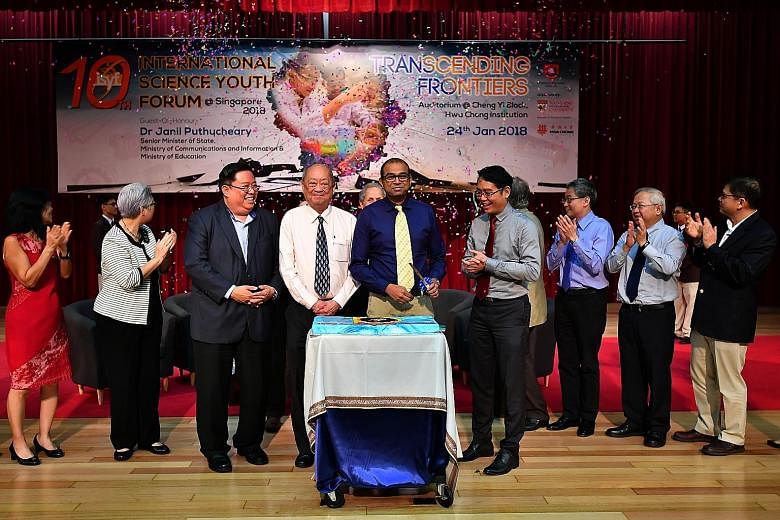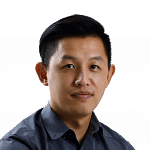A push for applied learning methods in secondary schools and the institutes of higher learning will help bridge the divide between what is learnt in school and how it is relevant to the real world.
Dr Janil Puthucheary, Senior Minister of State in the Ministry of Communications and Information and the Ministry of Education, told more than 100 students from 16 countries yesterday that Singapore remained staunchly pro-science, and supportive of the pursuit of scientific excellence.
The teens were attending the Grand Ceremony of the International Science Youth Forum 2018 at Hwa Chong Institution.
In applied learning, students get to see how theoretical concepts are used to tackle issues and problems in the real world.
"We are, across secondary schools and all the institutes of higher learning, making a very determined push to take these fundamental building blocks of knowledge, or cognitive skills, of academic learning, and, to be polite about it, encourage - to be rude about it, force - both students and educators to think about how these skills must be applied to real-world problems, industry challenges and social challenges while remaining in the education space," Dr Janil said in his speech.
To make it real, industry players, such as start-ups and multinational companies, would be engaged to work with schools, he said.
This means going out of school to learn about science in the field could be a core part of the curriculum and not just an occasional field trip.
He stressed there was no pushback against science, and the Government is strongly focused on moving forward in scientific endeavours. "Here in Singapore, we are anything but anti-science. We as a nation, government and society, fully believe in scientific methodology, principles that drive science and the pursuit of scientific excellence."
He pointed to the growing and consistent backing of research with funding over the last 25 years.
A record $19 billion was budgeted in 2016 for science and technology research over the next half decade.
The amount, part of the Research, Innovation and Enterprise 2020 plan, works out to about $4 billion annually, equivalent to around 1 per cent of Singapore's gross domestic product.
Dr Janil said: "The principles behind science, the achievements, the expectations and the opportunities, provide a way for us to deal with our existentialism in Singapore - the difficulty that we have to even exist as a nation, given our constraints of land, resources and circumstances."
This year's forum saw 120 students from 46 different schools in 16 countries, such as Mexico, Poland and Estonia, participating.
Into its 10th anniversary, the forum sees Nobel laureates and Fields Medallists engaging the delegates on scientific issues. The five-day programme also lets students visit various industries and try their hand at research activities at local universities.
Hwa Chong Institution principal Pang Choon How said the forum has inspired many young scientists from around the globe over the past decade.
SEE SCIENCE


